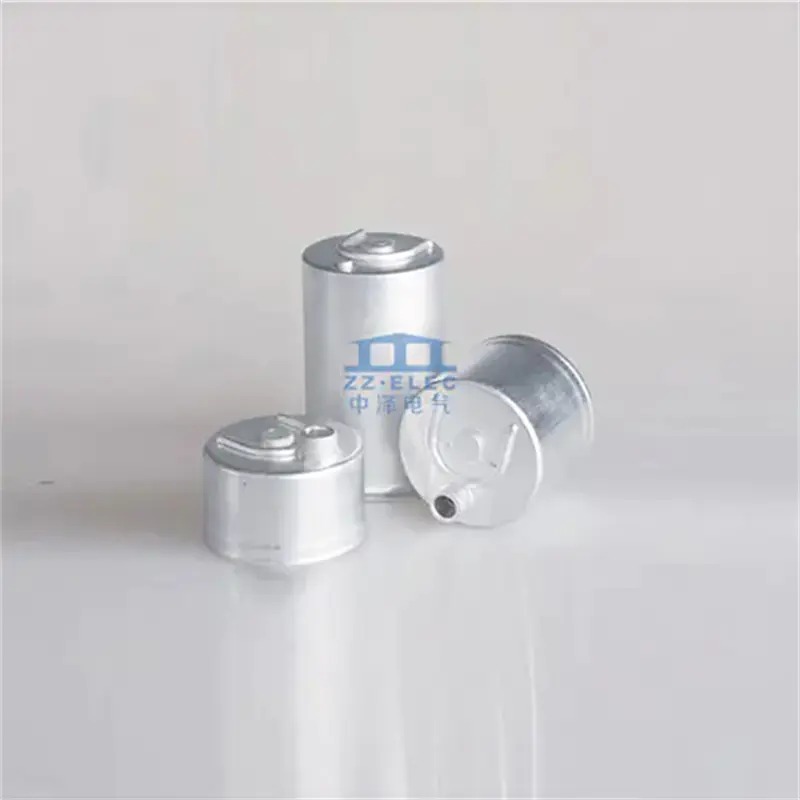Fuel Filter Structure
Fuel filter cover&housingType: nearly every existingMaterial: AL1060We specialize in Aluminum cold extrusion. Fuel filter cover and housing could ...

Ultra capacitor components, commonly referred to as supercapacitor components, have emerged as a critical technology in modern energy storage systems. Bridging the gap between traditional capacitors and batteries, these components are designed to deliver high power density, rapid charge-discharge cycles, and remarkable durability. In this article, we explore the structure, working principles, applications, and future trends of ultra capacitor components, integrating insights from related areas such as electrochemical capacitor principles, wide temperature operation, hybrid energy storage system design, and capacitor management system functions.
The performance of ultra capacitor components depends heavily on their internal design. The main components include:
Electrodes are typically made from high-surface-area porous carbon materials, which maximize the storage of electrical charge. The morphology of the electrode, including pore size and distribution, directly affects capacitance and energy density. Emerging materials, such as graphene or carbon nanotubes, are increasingly used to enhance the storage capability and conductivity of electrodes.
Electrolytes are the medium through which ions migrate between electrodes. The choice of electrolyte affects the voltage range, ionic conductivity, and operating temperature. Common types include aqueous electrolytes for lower voltage applications, organic electrolytes for higher voltage, and ionic liquids for extreme environments.
Separators are insulating layers that prevent short circuits while allowing ions to move freely. High-quality separators improve reliability and safety, especially under rapid charge-discharge cycles.
Current collectors, usually made of metals such as aluminum or copper, provide an electrical pathway between the electrodes and the external circuit. Their conductivity and stability are crucial for efficient energy delivery.
The key mechanism for energy storage in ultra capacitor components is electrochemical, rather than chemical reactions as in batteries. The process includes:
Because there is minimal chemical degradation, ultra capacitor components exhibit exceptionally long cycle life, often exceeding hundreds of thousands of cycles, which is a significant advantage over conventional batteries.
Ultra capacitor components are often compared with batteries in energy storage systems. While both store energy, their characteristics differ significantly:
| Feature | Ultra Capacitor Components | Batteries |
|---|---|---|
| Energy Density | Lower (Wh/kg) | Higher (Wh/kg) |
| Power Density | Very High (W/kg) | Moderate |
| Charge/Discharge Speed | Rapid | Slower |
| Cycle Life | Very Long (100,000+ cycles) | Limited (500–2,000 cycles) |
| Temperature Range | Wide, often -40°C to 65°C | Moderate, can degrade at extremes |
| Maintenance | Minimal | Moderate, requires monitoring |
With these innovations, ultra capacitor components are expected to become even more efficient, reliable, and versatile, bridging the gap between traditional capacitors and high-capacity batteries.
Ultra capacitor components are advanced energy storage devices that combine high power density and long cycle life. They store energy electrochemically, forming an electric double layer at the electrode-electrolyte interface. This allows rapid charge and discharge without significant chemical degradation, making them ideal for applications requiring bursts of power. Companies like Zhejiang ZZ Electric Co., Ltd. provide technical expertise in manufacturing components for ultra capacitors, leveraging decades of development experience and advanced cold extrusion technology to ensure high-quality, reliable products.
Ultra capacitor components are used in a wide range of industries, including transportation (e.g., regenerative braking in hybrid vehicles), renewable energy systems (e.g., stabilizing solar or wind power output), industrial equipment, and grid energy management. Zhejiang ZZ Electric Co., Ltd. supplies aluminum and structural components for capacitors, supercapacitors, and lithium batteries, supporting industries with high-quality materials and precision manufacturing. Their facilities include modern factory buildings, specialized cold extrusion equipment, CNC processing, and testing equipment to meet diverse customer requirements.
Compared to batteries, ultra capacitor components have higher power density, faster charge/discharge rates, and much longer cycle life, but lower energy density. Future trends include the development of advanced materials like graphene, integration into hybrid energy storage systems, and smart energy management solutions. Zhejiang ZZ Electric Co., Ltd. contributes to these innovations by producing high-precision aluminum components for supercapacitors and lithium batteries, applying decades of technical expertise, dozens of patents, and state-of-the-art manufacturing processes to support next-generation energy storage technologies.